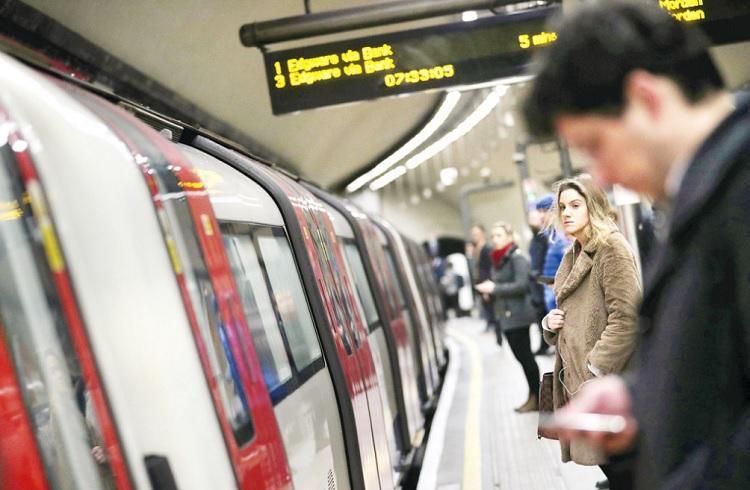
Commuters wait for a train without protective masks in a London underground station as the number of coronavirus cases grows around the world. (REUTERS Photo)
When I first heard the term “herd immunity”, the U.K. government’s former alleged policy of creating a coronavirus-immune society by deliberately letting the virus spread, the first idea that popped into my mind was this: Well I came to study here, but I am part of a herd now. I felt like a rat in an open-air laboratory, waiting to get infected.
When the news about the coronavirus started to break, the first change in our global community at Oxford was regarding the Asian residents. At the first wave of the panic, there were reports of people leaving buses as Asians embarked. In order to escape racism, Asians were the first ones to take visible precautions against the virus, wearing medical masks.
Following a short period of frowning, everything had surprisingly returned to being abnormally normal. As opposed to many countries, the U.K. has decided to follow a different path. My main objective is to delve into my personal experience during the country’s reincarnation of its “keep calm and carry on” policy, as it did during World War II.
As a result of Prime Minister Boris Johnson’s laissez-faire stance towards the virus, daily life had been almost uninterrupted. Schools, universities, pubs and shopping malls are were open before a major U-turn in the policy as of March 19. Apart from tech giants, who have endorsed the policy of working from home, many employees had gone to their offices, thus using public transport. As the government signaled to take “a tougher stance” in the actual non-existent stance towards the fight with the virus, the number of people in the public had started to diminish at the beginning of this week.
But still, people were on the streets. The young were confident that they could overcome the virus easier, and the elderly had no other choice. Many of them live alone or separately from their family. Hence, the youth were still in pubs and the elderly in grocery stores to fulfill their basic needs.
Let’s assume you have abided by the official advice and continued your social life. What happens if all of a sudden one day you wake up with a cough, sore throat or chest pain? Basically, you have nowhere to go. At the beginning of the crisis, the officials advised the public to call the emergency line of the National Health Service (NHS), to self-report suspected coronavirus cases. But as the number of cases has risen, NHS urged the public to visit the website of the institution, to get advice. The advice is to self-quarantine for seven days until the symptoms disappear. You cannot be admitted to the hospital unless you are in a critical condition.
This is what appears on the official level, but the reality may differ. I, personally, am aware of some cases which were denied tests but ended up in the hospital. Many people have had to go on a self-quarantine, some of them alone at homes, especially overseas students and the elderly.
But surprisingly some support Johnson’s approach. Some of the acquaintances whose opinion I have asked said that locking down people for an indefinite period won’t work as it is impossible to keep everybody safe. One even claimed she doesn’t use protective gear as she will get infected anyway. “It’s better to meet this virus as soon as possible, thanks to that I can get immune and continue my life as usual,” she said.
As it seems, some preferred running the wheels of the economy and social life. Others put strict regulations at the forefront. Upcoming months will favor one side for sure, but the British case will remain to be at the center of this controversy for some time, it seems.